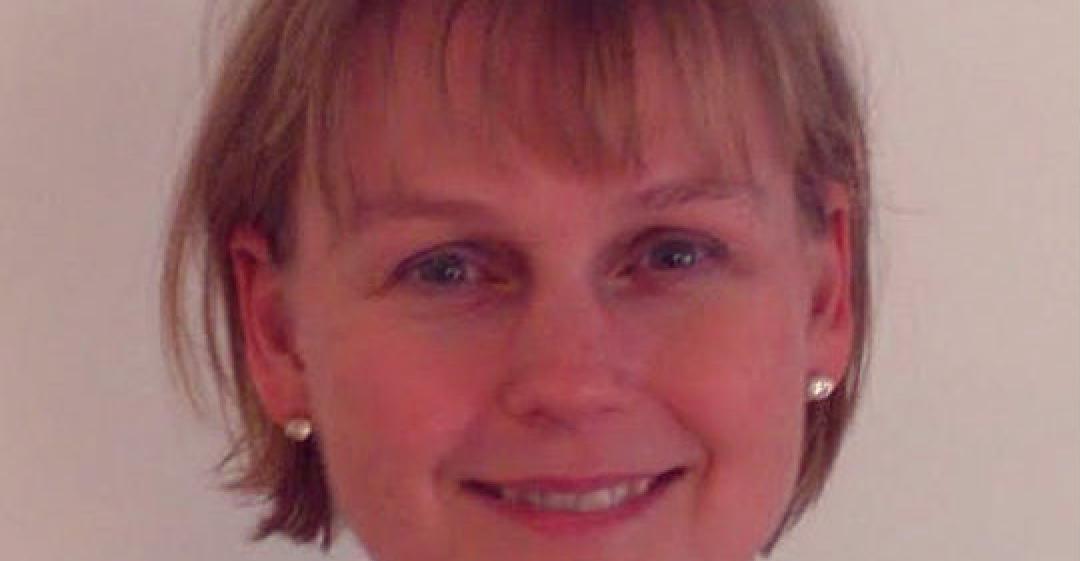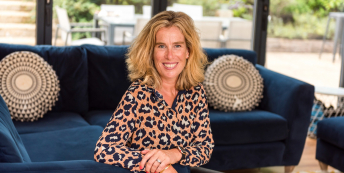“I filled my spare time to find the meaning I lacked at work; all this activity was burning me out.”

What work were you doing previously?
I trained and qualified as a librarian after leaving university.
Although I dipped in and out of other jobs over the course of my employed career, librarianship is the profession I always felt I belonged to. I worked in a mixture of academic and health libraries, in roles such as subject librarian and clinical librarian.
What are you doing now?
I am finally claiming my identity as a writer!
I have a number of different writing projects on the go: a series of fantasy novels, a blog 'written' by my cat, some work for the stage, and a book blog.
To help pay the bills, I also provide freelance editorial assistance to medical communications agencies.
Why did you change?
I was never able to settle into any job.
I really struggled with the 9–5 routine and felt very frustrated within the confines of organisational structures. As far back as my second professional post, I can remember wondering why I had to go into an office every day and why there wasn't a different way of doing things. I just craved freedom.
Also, as an introvert, I found that the number of hours I had to spend with other people was massively out of kilter with the hours I had for downtime. So I got into a ridiculous situation where I was filling my spare time with activities in order to find the meaning I felt was lacking in the workplace, and yet all this activity was burning me out. I had very little time left just for me.
Something, ultimately, had to give.
When was the moment you decided to make the change?
The change had probably been brewing since that second job!
Initially thinking it was librarianship that was the problem, I tried a few editorial jobs (my inner writer was clearly trying to make herself heard), but I experienced similar difficulties. I eventually realised that it was the whole idea of a traditional office-based career that was causing me such grief.
The decision to go it alone happened in two stages:
1. Making the decision in theory. I'd found a library job that I enjoyed more than any other job I'd had in a long time, but my attempts to build on this and turn it into something that really worked for me were thwarted by having an absolutely terrible manager. She had no interest in nurturing or developing her staff, and I became painfully aware of just how prevalent 'playing the game' of internal politics is in such organisations.
I knew that, whether I remained in that post, sought progression up the career ladder, or took a sideways step to another kind of job, I wouldn't be able to escape the necessity for politics and it would drive me utterly crazy.
I was also missing writing again, and I suddenly realised that by now I had the skills and experience to feasibly consider setting up some kind of business that combined all the things I enjoyed in one package, with no-one telling me what I was and wasn't allowed to do!
2. Making the decision in practice. I was too nervous to go it alone straight away, not to mention unfocused, so I took another job to keep me going while I made my plans. The job was another good one, with the benefit of having great managers too, which restored my faith in 'the system' a little. However, the commute was an hour and a half each way, the work was full-on, and after several months of long, busy, introvert-unfriendly days, I realised that I needed to listen to what my gut had been trying to tell me all these years. I wasn't cut out for a traditional workplace.
That's when I jumped ship completely. It took probably less than a year from theoretical decision to final exit.
Are you happy with the change?
Absolutely.
It's the best thing I ever did.
What do you miss and what don't you miss?
I guess when work is slow I miss the illusion of having a secure, monthly pay cheque – but I also know that that's an illusion!
I also miss working with some truly great colleagues. I have a massive amount of respect for people who are able to work with (and within) those kind of organisational structures in order to do good in the world.
I don't miss: having to ask permission to be absent for whatever reason (in fact, having to ask permission to do anything at all!); time wasted in commuting; gossip and internal politics; presenteeism; job interviews; the endless hierarchies and committee structures that make trying anything new such a painful process.
How did you go about making the shift?
When I realised that I needed to leave Terrible Boss Workplace, I started on a process of simultaneously looking for other jobs and pulling together a plan for going freelance.
I still didn't quite know which way I was going to turn (or, indeed, exactly what kind of freelance work I wanted to focus on, as I had quite a range of skills and wasn't yet sure how to turn them into a coherent business). I heard from a former colleague in the medical communications industry, who said that they could either put me on their books as a freelancer, or alternatively an in-house position was available.
So (after a successful interview) I decided to take the job, thinking that if it worked out it would be a step up from what I was leaving, and if it didn't, then at least I'd have brushed up my editorial skills ready for a potential freelancing career.
During my notice period I went to a series of business start-up workshops organised by my local council, which I found incredibly helpful. They gave me lots of practical support and advice, and made me feel that running my own business was perfectly do-able.
I also embarked on an intensive process of reviewing my skills, brainstorming possible business ideas, and making contact with everyone I knew who might be able to open doors for me. The plan was to start building a freelance business 'on the side' during my new job – I'd cleared with them that, as long as it wasn't a competing business, this would be fine.
It didn't quite work out that way, as both the job and the commute were too demanding for me to do anything on the side. However, I gained very valuable experience, refreshing my skills in this area, and acquiring a lot of practical knowledge about freelancing in the industry (such as typical rates), not to mention contacts! And so, when I left that job, I knew I had the basis of making a living, at least to begin with, as a freelance editorial assistant while building up my writing on the side.
It's now two years since I left that last job, and I'm finally beginning to put some writing out there into the world. If it hadn't been for taking the leap and going freelance, I doubt I'd have gotten this far: the frustrations of the workplace would simply have sapped my spirit.
How did you handle your finances to make your change possible?
When I decided to make the final leap, I had no savings.
Although I was confident there was a market for my skills, I still needed a buffer of a few months to get the business up and running. Therefore, I realised that I would need to take out a loan to see me through this period. Clearly this was risky, but based on my market research, it was a calculated risk.
I realised that the cheapest way of getting a loan (at least in terms of making my immediate monthly repayments as low as possible) was to take out extra borrowing on my mortgage, which I'd had blemish-free for nearly ten years. As I was also planning to pay off my credit card and have a small bit of work done on the house, I made the request for the purpose of 'home improvement and loan consolidation'. Obviously, I didn't hand in my notice until the loan had gone through and I had the money.
It was a bit hair-raising, but it worked. And, fortunately, once I started work on the business, I did start earning. I've also never used a credit card since that day.
For now, I'm living a careful balance between 'just enough' and 'comfortable'. I'm also lucky enough to be married to someone with a full-time job!
To be brutally honest, I made the final leap when I realised that my worst fear – that of losing the house – was actually more palatable than what I was putting myself through in terms of work / commute. You have to ask yourself the questions: 'just how bad have things gotten?' and 'just what am I prepared to do about it?'
What was the most difficult thing about changing?
Probably overcoming money worries.
It was a huge mindset shift to go through, but I now feel a lot more connected to and in control of my finances. I know that if I need more cash, it's up to me to do something about it.
Knowing that I actually can come up with new ideas for that, rather than being solely dependent on a monthly pay cheque, is a very liberating feeling. But for someone who was as risk-averse as I was, the mental effort required for this kind of shift shouldn't be underestimated.
What help did you get?
The workshops run by my council were a huge help, as was the follow-up advice I got from one of the advisors I met there.
I also talked to a number of people I knew who were already self-employed, to get support, advice and feedback from people already living the life I wanted.
Last but not least, I relied heavily on the inspiration and encouragement I got from newsletters such as Careershifters and Free Range Humans. They made me feel it was all possible.
What have you learnt in the process?
That I was right all along about there being an alternative to the daily grind.
So I guess I've learned to trust my instincts more. Also, that I'm more resourceful and resilient than I previously gave myself credit for.
I've learnt the importance of identifying my strengths and weaknesses, and to ask for help when needed. For instance, I'm happy to tinker about with my own website, but I have an accountant for all the financial stuff.
I've also learnt the hard way that not everyone will accept or acknowledge what I'm doing. There are still people who think that 'working from home' means I sit around with my feet up all day. But I've learnt who I can trust, and who I need to gradually dissociate myself from, in order to keep myself feeling valued and supported.
What do you wish you'd done differently?
I think my only regret might be that I didn't do this earlier.
But, on the other hand, I probably needed each and every one of my experiences to shape me into the person who was able to make the leap when the time came, so I think it all worked out as it needed to.
What would you advise others to do in the same situation?
Get specific, practical help and advice about the particular things that are scaring you about making a change.
For instance, if you're worried about making ends meet, identify exactly what you need to live on, how long any savings will last you, where you can make cutbacks in spending, when you need to start earning to pay the bills, what exactly would happen if you defaulted on any payments, and what steps you could take to deal with that if it happened (e.g. who could you call on for help?).
It's often when we drill down to a very specific level of detail and get absolutely clear on precisely what is scaring us that we can begin to take baby steps towards the solutions. Also, try to get used to differentiating between vague fears ('I might not have much money in a year's time') and real threats ('I do not have the money to pay this month's mortgage').
What resources would you recommend to others?
Try your local council's business support department for practical support and guidance.
Check out sources of temp jobs in case you need to turn to this in an emergency; your local university may well have a pool of temp staff you can apply to join.
You can find out more about Gwyneth's work at www.gwynethmarshman.com.
What lessons could you take from Gwyneth's story to use in your own career change? Let us know in the comments below.



